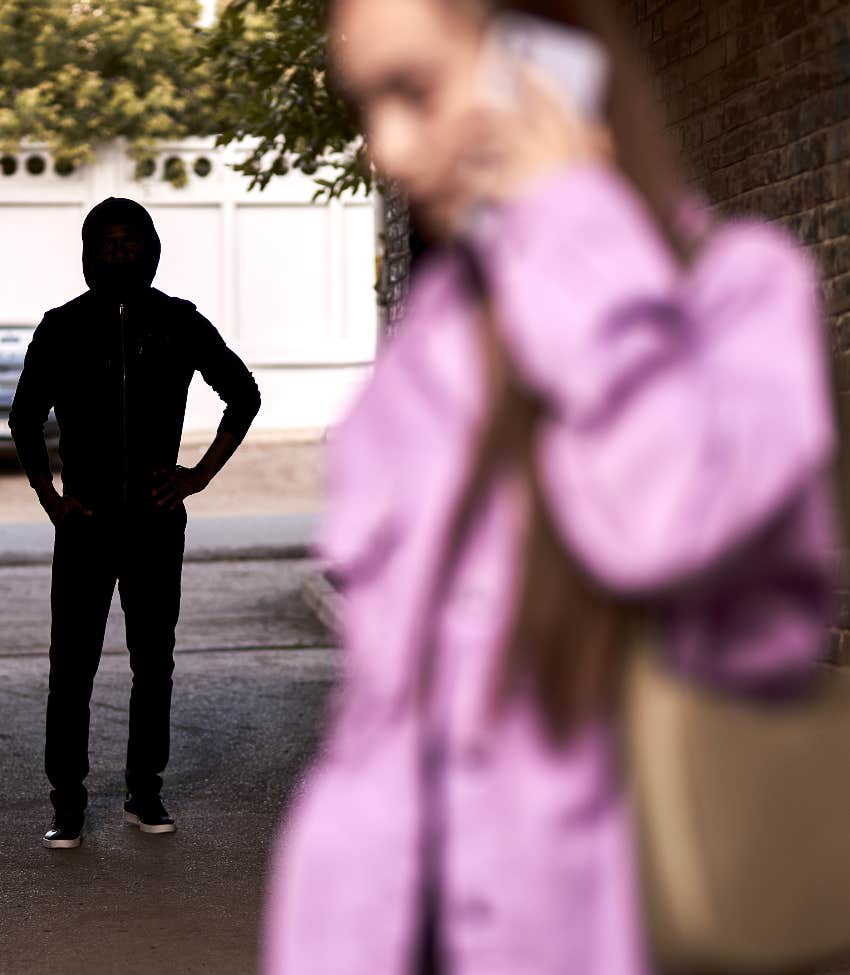Attorney Says Prosecutors Have Made A Huge Mistake In The Charges Against Luigi Mangione — 'I Don't Think They Got It'
"Everything about the law is technical."
 Natee Meepian | Shutterstock
Natee Meepian | Shutterstock For weeks now, the country has been captivated by Luigi Mangione, the suspected killer of UnitedHealthcare CEO Brian Thompson.
Now that Mangione has been arrested for the murder, he will have to face an actual jury and not just the court of public opinion. But, one lawyer thinks it’s possible that the charges are all wrong.
An attorney stated that she thinks prosecutors got the charges against Luigi Mangione wrong.
Sarena Townsend is a criminal attorney based in New York City. She shared a TikTok video with her thoughts on the charges filed against Mangione.
“Listen, I read the federal charges against Luigi Mangione, and I — I don’t think they got it,” she said. “I don’t think they’re gonna get him.”
The lawyer explained that prosecutors have a burden of proof that she doesn't think they can meet.
According to Townsend, “Federal prosecutors have to prove beyond a reasonable doubt every single element of every single charge that they want him convicted of.”
Townsend said that many of her fellow lawyers are confused about the fact this has become a federal case when it is more obviously a murder case, which would mean it’s handled by the state.
“Um, so the question was like, well, what made this federal?” she continued. “And the answer is now apparent because I’ve seen the complaint, and all four of the charges rely on stalking, on the feds being able to show that Luigi was stalking Brian Thompson.”
On the surface, this may not seem like a huge problem. After all, didn’t Mangione have to engage in some form of stalking to figure out where Thompson was? Townsend said it’s not that simple.
“Now, here’s the problem,” she stated. “Every part of a charge has legal definitions. It’s not just like, ‘Oh, stalking! I know what that means.’ No, you don’t, okay? You have to look it up.”
It turns out that stalking is actually much more than just following another person around.
“Stalking, under the law, requires that the person who is doing the stalking put the victim in reasonable fear of death,” she said. “Now, I don’t know if you saw that surveillance video of the shooting, but I did, and Brian Thompson was not in fear of dying, and I don’t think he even knew that whoever the shooter was, Luigi or otherwise, was … trying to kill him or had planned to kill him.”
The attorney doesn’t think the case is solid enough because of the legal nature of stalking.
 Sora Shimazaki | Pexels
Sora Shimazaki | Pexels
“The murder charge requires him to have murdered and stalked Brian Thompson in order for it to be federal,” Townsend told viewers. “Now, maybe there’s evidence that you and I don’t know about that the feds have, but they put together an affidavit showing the probable cause that they believe they have in order to meet the standard, and I did not see anything in there to indicate that Brian Thompson was in reasonable fear of dying at the hands of Luigi.”
“Now, if a federal grand jury recognizes this, then maybe they won’t indict him, but that’s … the bottom line,” she shared. “If they cannot prove every element, including the elements having to do with stalking, beyond a reasonable doubt, then he cannot be convicted of any of the four federal charges.”
Stalking is more than just following someone.
Most people have a very narrow view of stalking because of the way it is presented in popular culture. However, the legal definition is a bit more serious.
According to Cornell University’s Legal Information Institute, “The term ‘stalking’ means engaging in a course of conduct directed at a specific person that would cause a reasonable person to — (A) fear for his or her safety or the safety of others; or (B) suffer substantial emotional distress.”
 Shakirov Albert | Shutterstock
Shakirov Albert | Shutterstock
If Thompson had no concerns about his safety, then it is possible that Mangione could walk away free.
In Townsend’s opinion, tying all of the charges to stalking may not have been the wisest choice.
Mary-Faith Martinez is a writer with a bachelor’s degree in English and Journalism who covers news, psychology, lifestyle, and human interest topics.
